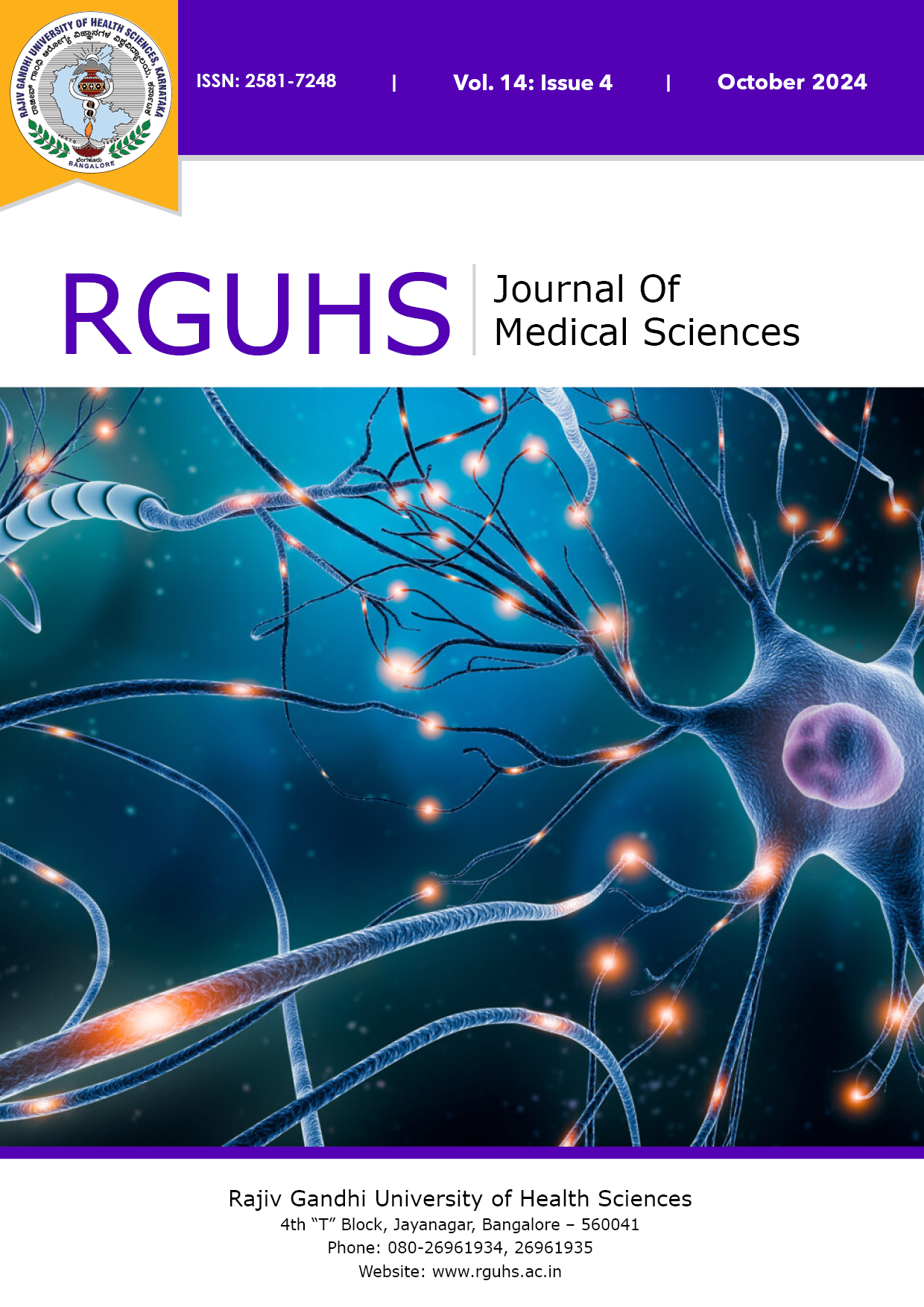
RGUHS Nat. J. Pub. Heal. Sci Vol: 14 Issue: 4 eISSN: pISSN
Dear Authors,
We invite you to watch this comprehensive video guide on the process of submitting your article online. This video will provide you with step-by-step instructions to ensure a smooth and successful submission.
Thank you for your attention and cooperation.
Neki NS1* , Tamil Mani2 , Himanshu Gupta2 , Maninder Singh 2, Divyang M Shah2
1Professor, 2Junior Resident; Department. of Medicine, Govt. Medical College and Guru Nanak Dev Hospital, Amritsar, Punjab, India.

Abstract
Irritable bowel syndrome (IBS) is most prevalent functional gastrointestinal disorder characterized by abdominal pain and altered bowel habits in the absence of specific organic pathology. The general understanding developed that IBS was lower abdominal pain or discomfort associated with disordered defecation and often associated with relief of pain with defecation. IBS is diagnosis of exclusion. It is important to rule out organic causes. IBS is troublesome, with a significant negative impact on quality of life and social functioning in many patients. Its chronic nature, signs and symptoms which vary periodically from mild to severe ones have many negative effects on the quality of life for the sufferer. IBS generates significant health care costs both direct because of IBS symptoms and associated disorders and indirect because of time off work. Patients should be informed by their doctors that the nature of the disease is benign, and educated on how to deal with and control symptoms of the disease. This article focuses on pathophysiology, diagnostic evaluation and current treatment aspects
Keywords
Downloads
-
1FullTextPDF
Article
none
Supporting File
References
none